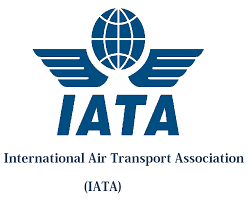The International Air Transport Association (IATA) is gearing up to host the World Sustainability Symposium (WSS) in Hong Kong from October 21st to 22nd, 2025, marking a critical juncture in the global aviation industry’s pursuit of decarbonization. The symposium, strategically positioned between the recent 42nd ICAO Assembly and the upcoming COP30 climate summit, aims to galvanize concrete action towards achieving net-zero carbon emissions by 2050. This ambitious target necessitates a collaborative approach involving governments, industries, and institutions worldwide, fostering innovation and accelerating the development and implementation of sustainable practices. The WSS will serve as a pivotal platform for stakeholders to converge, brainstorm, and chart a course towards a greener future for aviation.
A central theme of the WSS will be the role of Sustainable Aviation Fuel (SAF) in decarbonizing the sector. SAF is widely recognized as the linchpin in achieving net-zero emissions goals, offering a viable alternative to conventional jet fuel. The symposium will delve into the potential of SAF, exploring strategies for scaling up production and addressing the associated challenges. Several countries in the Asia-Pacific region, including India, Malaysia, Vietnam, and notably China, have emerged as potential hubs for SAF production, given their existing infrastructure and commitment to renewable energy. China, with its ambitious goal of carbon neutrality by 2060, is particularly well-positioned to lead the charge in SAF development and deployment. The WSS will provide a forum to discuss best practices, share knowledge, and foster collaboration in advancing SAF production and utilization.
While the potential of SAF is undeniable, the transition to a sustainable aviation industry requires substantial financial investment. The WSS will address the financial aspects of decarbonization, highlighting the need for policy frameworks and incentives to attract investment in renewable energy technologies. Currently, the return on investment in renewable energy is significantly lower than that of fossil fuels, creating a financial gap that needs to be bridged through government support and innovative financing mechanisms. The symposium will explore various funding models and discuss how to incentivize private sector investment in green technologies. Furthermore, it will emphasize the importance of a global, liquid, and transparent market for both SAF and carbon credits to ensure the efficient allocation of resources and accelerate the transition to sustainable aviation.
Beyond SAF, the WSS will explore a broader spectrum of strategies for reducing aviation’s environmental footprint. This includes optimizing flight operations, improving aircraft efficiency, and exploring innovative technologies such as electric and hydrogen-powered aircraft. The symposium will delve into the challenges and opportunities associated with these technologies, emphasizing the need for collaborative research and development efforts to accelerate their deployment. Furthermore, the WSS will address the importance of international cooperation and harmonization of regulations to ensure a level playing field and avoid fragmentation in the global aviation market. The Carbon Offsetting and Reduction Scheme for International Aviation (CORSIA), a global market-based measure to address CO2 emissions from international aviation, will be a key topic of discussion, emphasizing the need for continued global support and cooperation to ensure its effectiveness.
IATA has already taken proactive steps to support the decarbonization of the aviation industry by developing several tools and initiatives. These include the SAF Matchmaker, a platform connecting SAF producers with airlines, the SAF Registry, which tracks SAF production and usage, and the Aviation Carbon Exchange, where airlines can buy and sell carbon credits. These tools are designed to facilitate the transition to sustainable aviation by providing transparency, promoting market-based solutions, and fostering collaboration amongst stakeholders. The WSS will showcase these initiatives and encourage their wider adoption by the aviation industry.
The WSS is not merely a forum for discussion; it is a call to action. The symposium’s overarching goal is to translate ambition into tangible results, forging aligned strategies, securing substantial investments, and fostering genuine cooperation among all stakeholders. The aviation industry’s commitment to net-zero emissions by 2050 demands a concerted and collaborative effort, requiring governments, industries, and institutions to work in unison. The WSS serves as a crucial stepping stone in this journey, providing a platform for knowledge sharing, partnership building, and the development of innovative solutions to address the complex challenges of decarbonizing the aviation sector. The success of this endeavor hinges on the collective will and commitment of all participants to embrace a sustainable future for aviation.


